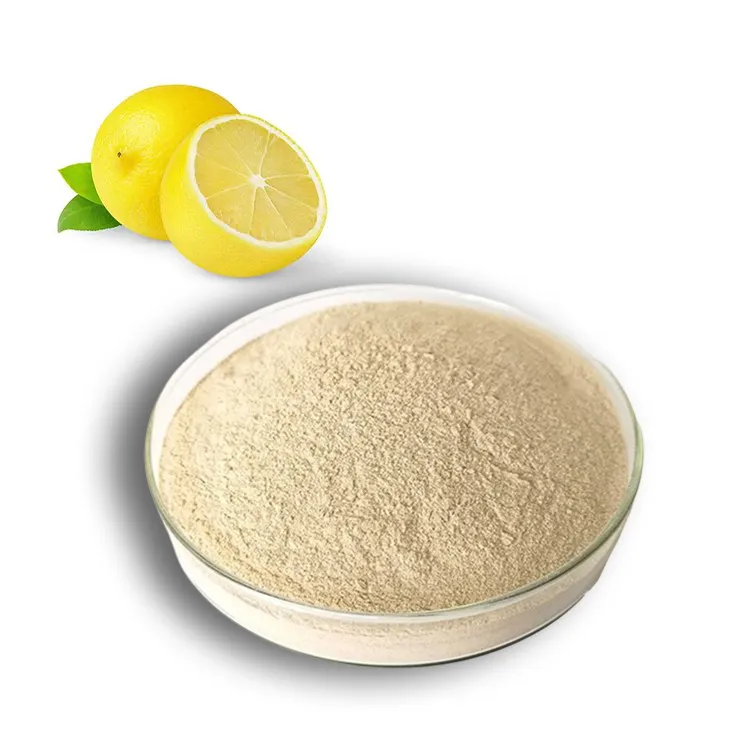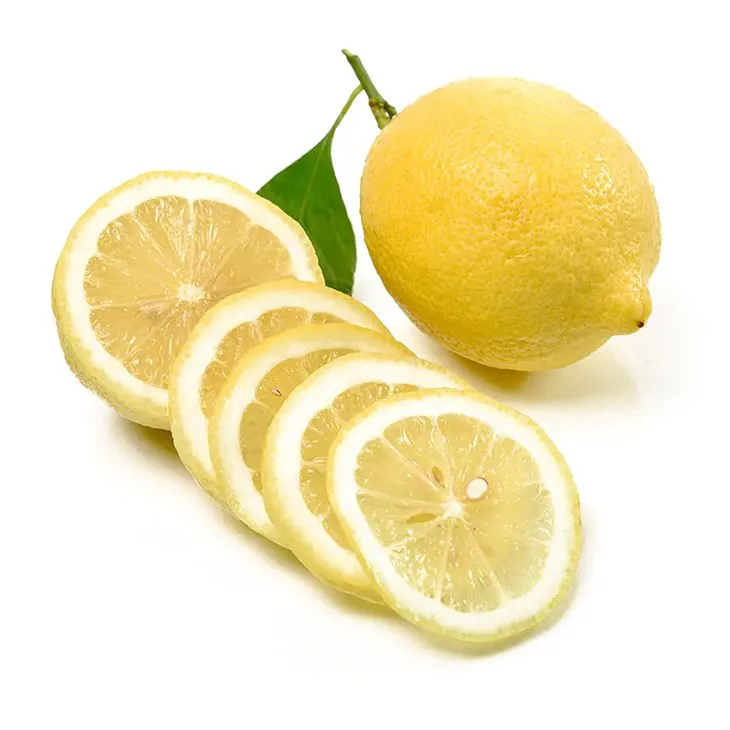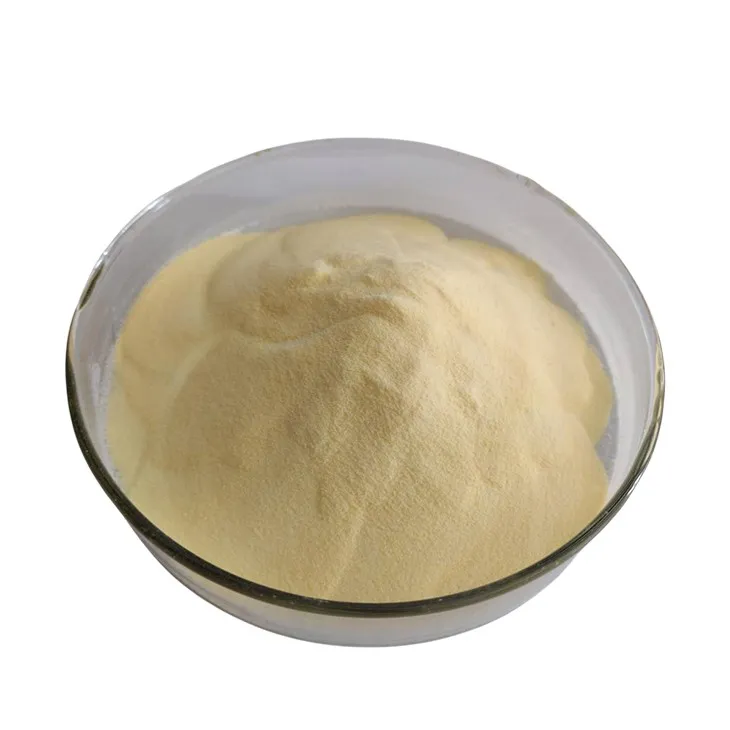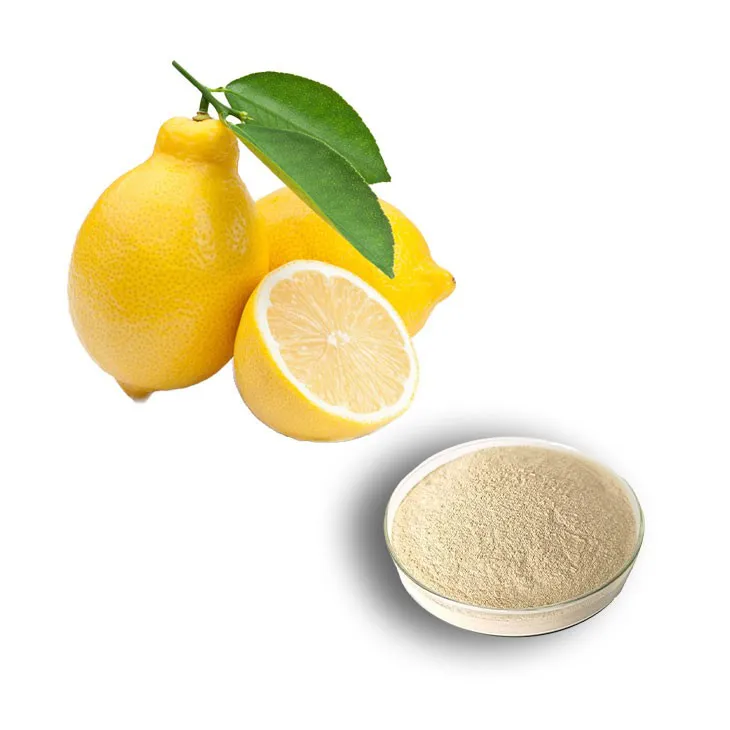- 0086-571-85302990
- sales@greenskybio.com
Bulk purchase of lemon extract.
2024-11-26

Introduction
Lemon Extract has become an increasingly popular ingredient in various industries, from food and beverage to cosmetics and pharmaceuticals. Its unique flavor, aroma, and potential health benefits make it a valuable addition to many products. Bulk purchase of Lemon Extract can offer numerous advantages for businesses and manufacturers, but it also comes with its own set of challenges. This article will delve into the details of bulk buying Lemon Extract, exploring its benefits, selection criteria, and how to overcome potential obstacles.

Advantages of Bulk Purchase
Meeting High - Volume Requirements
1. Manufacturing Processes
- In the food and beverage industry, large - scale production of lemon - flavored products such as lemonade, lemon - flavored candies, and baked goods with lemon essence requires a significant amount of lemon extract. Buying in bulk ensures that there is a continuous supply to keep the production lines running smoothly.
- For cosmetics companies that produce lemon - scented lotions, soaps, and perfumes, a large quantity of lemon extract is needed to meet market demands. Bulk purchase allows for cost - effective production on a large scale.
- In the pharmaceutical sector, lemon extract may be used in certain medications or supplements. A consistent and ample supply is crucial for maintaining production schedules and meeting the needs of patients or consumers.
Cost - Efficiency
2. Economies of Scale
- When purchasing lemon extract in bulk, suppliers often offer lower unit prices. This is because they can reduce their handling and packaging costs per unit when dealing with larger quantities. For example, the cost of packaging materials and labor for a single small - sized bottle of lemon extract is relatively high compared to a large - volume container.
- Bulk purchases also reduce transportation costs per unit. Instead of making multiple small shipments, a single large - volume shipment can be more cost - effective. This is especially true when considering long - distance transportation from the source of the lemon extract to the manufacturing facility.

Selecting the Best Lemon Extract for Bulk Purchase
Quality Considerations
1. Purity
- High - quality lemon extract should have a high level of purity. This means that it should contain a significant amount of the active compounds found in lemons, such as citral, limonene, and other essential oils. Impurities can affect the flavor, aroma, and performance of the extract in various applications.
- Testing for purity can involve methods such as gas chromatography - mass spectrometry (GC - MS) to accurately identify and quantify the components of the lemon extract. Manufacturers should look for suppliers who can provide certificates of analysis indicating the purity levels of their products.
- The solvent used in the extraction process can have an impact on the quality of the lemon extract. Some solvents may leave residues that could be harmful or affect the sensory properties of the extract. For example, ethyl alcohol is a commonly used solvent in food - grade lemon extract, but it must be of high purity to avoid any off - flavors or potential health risks.
- Organic lemon extracts, which are often preferred in the natural and organic product markets, should be extracted using solvents that are compliant with organic standards. This ensures that the final product meets the requirements of consumers who are looking for organic - certified ingredients.
Origin of Lemons
1. Geographical Factors
- The origin of the lemons used in the extract can influence its quality. Lemons grown in different regions may have different flavor profiles due to variations in soil composition, climate, and farming practices. For example, lemons from the Mediterranean region are known for their intense flavor and high essential oil content, while those from other regions may have a milder taste.
- Some regions may also have a reputation for better agricultural practices, such as reduced pesticide use or more sustainable farming methods. This can be an important factor for manufacturers who are targeting consumers who are concerned about environmental and health issues.
- Knowing the origin of the lemons allows for better traceability, which is crucial in case of any quality issues or recalls. Manufacturers should be able to trace the source of the lemons used in the extract back to the specific farms or regions. This information can also be used for marketing purposes, highlighting the origin of the ingredients to consumers.
- Suppliers should be able to provide detailed information about the origin of the lemons, including the country, region, and even the specific farms if possible. This transparency helps build trust between the manufacturer and the supplier, as well as with the end - consumers.
Extraction Methods
1. Cold - Press Extraction
- Cold - press extraction is a method that involves mechanically pressing the lemons to extract the juice and essential oils without the use of heat. This method is preferred for maintaining the natural flavor and aroma of the lemons, as well as preserving the integrity of the active compounds. Cold - pressed lemon extract is often considered of higher quality for applications where the natural characteristics of the lemon are highly valued, such as in high - end food products and natural cosmetics.
- However, cold - press extraction can be more expensive and less efficient in terms of yield compared to other methods. But for manufacturers who are targeting the premium market segment, the quality benefits may outweigh the cost disadvantages.
- Steam distillation is another common method for extracting lemon extract. In this process, steam is passed through the lemon peel or whole lemons to extract the essential oils. Steam - distilled lemon extract has a different flavor profile compared to cold - pressed extract, as the high - temperature process can cause some chemical changes in the compounds. However, it can be a more cost - effective method for large - scale production, especially when the final product does not require the exact same flavor as cold - pressed extract.
- One advantage of steam distillation is that it can also produce a more concentrated form of the extract, which can be useful for applications where a strong lemon flavor is desired, such as in some cleaning products or industrial applications.

Potential Challenges in Bulk Purchase and How to Overcome Them
Regulatory Compliance
1. Food and Beverage Regulations
- In the food and beverage industry, lemon extract must comply with strict regulatory requirements regarding food safety, labeling, and ingredient standards. For example, in some countries, there are limits on the amount of certain additives or solvents that can be present in food - grade lemon extract. Manufacturers need to ensure that the lemon extract they purchase meets these regulations to avoid any legal issues or product recalls.
- To overcome this challenge, manufacturers should work closely with their suppliers to obtain all the necessary documentation, such as certificates of analysis, food safety certifications, and compliance statements. They should also stay updated on the latest regulatory changes in the regions where they sell their products.
- In the cosmetics and pharmaceutical sectors, lemon extract may be subject to different regulations depending on its intended use. For example, in cosmetics, there are regulations regarding the safety of ingredients, labeling requirements for natural and organic claims, and restrictions on certain substances. In pharmaceuticals, lemon extract may need to meet strict quality and purity standards for use in medications or supplements.
- Manufacturers in these industries should have a thorough understanding of the relevant regulations and work with suppliers who have experience in meeting these requirements. They may also need to conduct additional testing or validation of the lemon extract to ensure compliance with the specific regulations.
Market Fluctuations
1. Price Volatility
- The price of lemon extract can be subject to significant fluctuations due to various factors such as changes in lemon crop yields, weather conditions, and global market demand. For example, a poor lemon harvest in a major producing region can lead to a shortage of raw materials and an increase in the price of lemon extract.
- To mitigate the risk of price volatility, manufacturers can consider entering into long - term contracts with suppliers at fixed prices or with price - adjustment clauses based on market indices. They can also diversify their sources of lemon extract by purchasing from multiple suppliers in different regions to reduce their dependence on a single source.
- Natural disasters, political unrest, or other unforeseen events can disrupt the supply of lemon extract. For instance, a hurricane in a lemon - growing region can damage crops and halt production for a period of time. This can cause significant problems for manufacturers who rely on a continuous supply of lemon extract.
- To address supply disruptions, manufacturers can maintain safety stocks of lemon extract to cover short - term shortages. They can also develop contingency plans with their suppliers, such as alternative sourcing options or emergency production arrangements. Additionally, building strong relationships with suppliers can help in times of crisis, as suppliers may be more willing to prioritize their long - term customers.

Conclusion
Bulk purchase of lemon extract offers many opportunities for businesses in various industries. It can meet high - volume requirements, provide cost - efficiency, and contribute to the production of high - quality products. However, it also comes with challenges such as regulatory compliance and market fluctuations. By carefully considering the quality, origin, and extraction methods of lemon extract during the selection process and implementing strategies to overcome potential challenges, manufacturers can make the most of their bulk purchases. With proper planning and management, lemon extract can be a valuable ingredient in a wide range of products, satisfying both consumer demands and business objectives.
FAQ:
What are the main applications of lemon extract?
Lemon extract is widely used in the food and beverage industry for flavoring purposes, such as in cakes, candies, and soft drinks. It is also used in the cosmetic industry for its pleasant smell and potential skin - beneficial properties. In addition, it can be used in some household cleaning products due to its natural antibacterial properties.
How can one ensure the quality when making a batch purchase of lemon extract?
When making a batch purchase, one can ensure the quality of lemon extract by looking at the reputation of the supplier. Reputable suppliers usually follow strict quality control procedures. Checking for certifications, such as food - grade certifications, is also important. Analyzing the chemical composition and purity of the extract through laboratory tests, if possible, can also help. Additionally, samples can be requested to assess the flavor, aroma, and overall quality before making a large - scale purchase.
What are the different extraction methods of lemon extract?
There are several extraction methods for lemon extract. One common method is cold - pressing, which involves mechanically pressing the lemons to extract the juice and then further processing it to obtain the extract. Another method is solvent extraction, where solvents are used to extract the desired components from the lemons. Steam distillation is also used, especially for extracting the essential oils from lemons which can be part of the lemon extract. Each method has its own advantages and may result in different qualities of the final extract.
How do market fluctuations affect the bulk purchase of lemon extract?
Market fluctuations can have a significant impact on the bulk purchase of lemon extract. If there is a shortage of lemons due to factors like bad weather or disease in lemon - growing regions, the price of lemon extract may increase. This can increase the cost of bulk purchases. On the other hand, if there is an oversupply in the market, prices may drop, presenting an opportunity for cost - effective bulk buying. Fluctuations in currency exchange rates can also affect the cost of imported lemon extract, especially if the extract is sourced from other countries.
What regulatory requirements should be considered when buying lemon extract in bulk?
When buying lemon extract in bulk, various regulatory requirements need to be considered. In the food industry, it must meet food safety standards and regulations regarding additives and preservatives if any are present. For international purchases, there may be import regulations regarding the purity, labeling, and packaging of the extract. In the cosmetic industry, it needs to comply with regulations related to ingredient safety and product labeling. It is important to stay updated with the relevant regulatory bodies' requirements to ensure legal and compliant purchases.
Related literature
- Bulk Purchase Strategies for Food - based Extracts"
- "Lemon Extract: Quality Control in Large - scale Procurement"
- "Regulatory Aspects of Buying Botanical Extracts in Bulk"
- ▶ Hesperidin
- ▶ Citrus Bioflavonoids
- ▶ Plant Extract
- ▶ lycopene
- ▶ Diosmin
- ▶ Grape seed extract
- ▶ Sea buckthorn Juice Powder
- ▶ Fruit Juice Powder
- ▶ Hops Extract
- ▶ Artichoke Extract
- ▶ Mushroom extract
- ▶ Astaxanthin
- ▶ Green Tea Extract
- ▶ Curcumin
- ▶ Horse Chestnut Extract
- ▶ Other Product
- ▶ Boswellia Serrata Extract
- ▶ Resveratrol
- ▶ Marigold Extract
- ▶ Grape Leaf Extract
- ▶ New Product
- ▶ Aminolevulinic acid
- ▶ Cranberry Extract
- ▶ Red Yeast Rice
- ▶ Red Wine Extract
-
Hericium erinaceus extract powder
2024-11-26
-
Saffron Extract Powder
2024-11-26
-
Hedyotis Diffusa Extract
2024-11-26
-
Sea buckthorn Juice Powder
2024-11-26
-
Chasteberry Extract
2024-11-26
-
Fenugreek Extract Powder
2024-11-26
-
Kelp Extract Powder
2024-11-26
-
Panax Ginseng Leaf Extract
2024-11-26
-
Tinospora cordifolia extract
2024-11-26
-
Passionflower Extract
2024-11-26





















